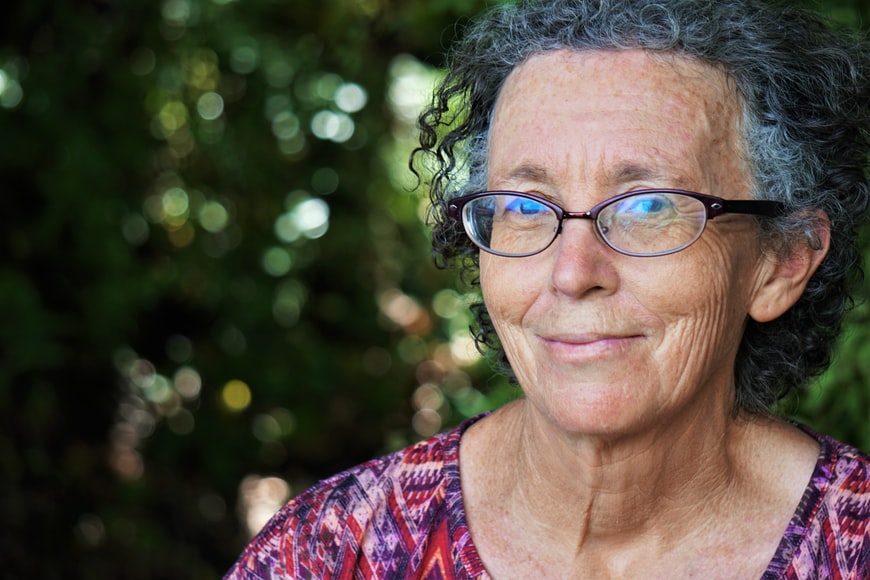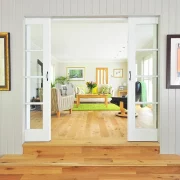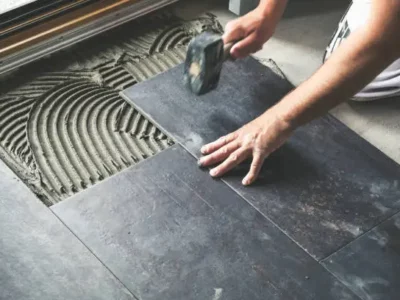Taking care of an older family member includes everything from providing them with food and water, to making sure they get enough exercise and are kept clean and comfortable. Caring for an elderly family member can be challenging, but it’s a hugely rewarding experience. Follow these tips and you’ll be on your way to providing your loved one with the best possible care.
Provide Them With A Functional and Safe Living Space
Most older family members spend a lot of time in their living space. This means it’s important to make sure these spaces are clean and functional. If your loved one lives in an apartment, hire a cleaning service or do it yourself while they’re out to get rid of all the cobwebs and dirt. Replace burnt-out light bulbs and ensure that there’s ample lighting throughout the place. Much like a child who is afraid of the dark, darkness can cause anxiety for your elderly family member. Make sure they’re able to keep track of what they’re doing at night by installing brighter lights near their bedside tables. If your older person isn’t confident when going up and down the stairs, consider www.stairlifthelper.co.uk to help them with this daily task with ease. Ensure that there aren’t any rugs or cords on the floors where your senior might trip over them or roll their wheelchair. These are all dangerous scenarios that can be avoided by making sure your loved one’s space is clean and clear of clutter.
Installing Grab Bars Near Bathroom Sinks And Showers
Bathrooms are home to many dangerous items such as appliances like hairdryers and bathtubs which can cause your seniors to slip and fall during their daily tasks. To prevent injury, make sure grab bars are installed properly on either side of bathroom sinks and showers so that they may hold onto something for balance if needed without worrying about falling over. This will keep your older family member at home longer without the threat of falling and other bathroom-related accidents.
Installing A Medical Alert System Or Other Helping Device
A medical alert system is one of the most critical things to install in your senior loved ones’ homes; each month many elderly people die from preventable accidents that could have been easily avoided with the use of these types of emergency devices. Look into products like LifeStation or MedicAlert, both of which provide 24/7 access for paramedics or authorities to ensure any medical emergencies are treated as quickly as possible. These systems also function by contacting family members if the wearer ever falls so that they may come to assist their loved one until help arrives.
Keep Them In The Loop Of Family News
Keeping an older family member in the loop about what’s going on in the family means a lot to them, even if they don’t appear to be responding much. Have daily conversations regarding anything your senior member might find interesting or important, such as upcoming events or milestones reached by other family members. If there is any news in particular that you think would particularly excite them, try sharing it with them in person or via a phone call when possible.
Prepare Meals That Are Easy To Digest And Aren’t Spicy
Since seniors are typically more sensitive to taste, it’s important to prepare food that they will want to eat. For example, many older people have a hard time digesting spicy or acidic foods. Instead of making them something with garlic and onions for dinner, try making their favorite meals without these ingredients instead.
Set Up A Weekly Routine
Having daily routines can help your senior family member know what’s expected of them throughout the day. This is particularly helpful if your loved one has dementia or Alzheimer’s disease, as this type of condition causes memory loss and confusion regarding past events and current surroundings.
Ensure They Get Plenty Of Exercises And Social Interaction
Regular exercise not only keeps an older person physically fit but also prevents them from contracting any life-threatening illnesses. Social interaction is important as well, and if your loved one lives alone you should try to visit them at least once a day and speak with them about anything they might find interesting or exciting.
Recognize Signs of Mental Health Issues
Older people who experience depression typically feel lonely, helpless, and like they don’t have many purposes left in life. It’s important to keep your eyes open for any of these symptoms or signs – once you notice them it’s time to make an appointment with the doctor so that they can be properly diagnosed and treated with antidepressants if necessary.
These are just some of the many things that can be done to care for an older family member. Make sure to follow these tips to keep them safe and happy in their own home.






















